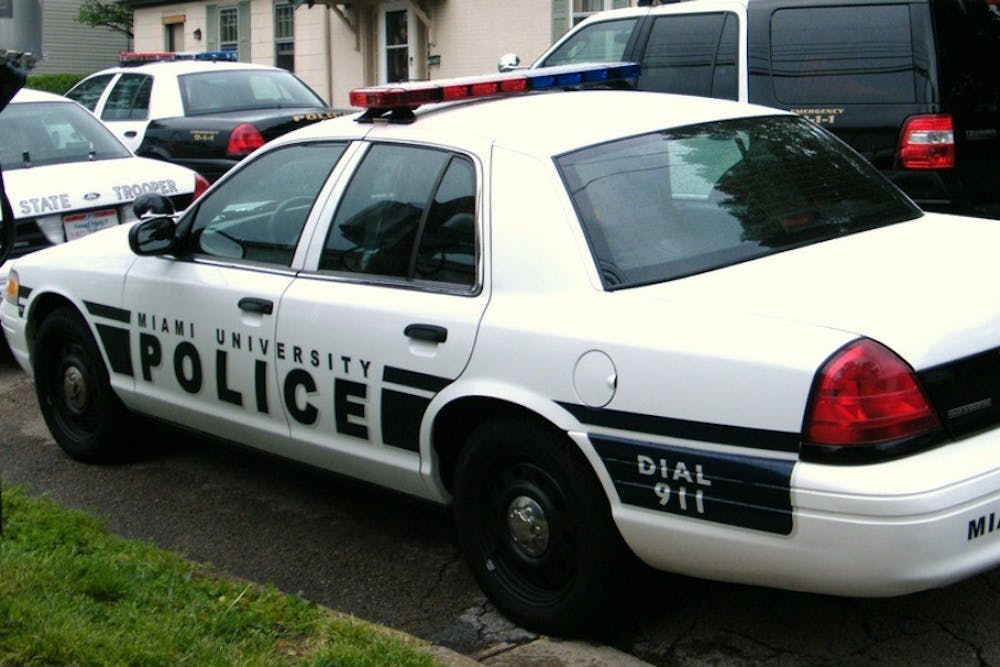By Jeffrey Sadownick, For The Miami Student
The Miami University Police Department (MUPD) purchased 23 body cameras in late January and expects officers to begin wearing them near the end of March.
Body cameras are small video cameras that pin to an officer's chest like a badge. Body cameras have become more popular nationwide as communities demand more accountability from law enforcement following the police shooting of unarmed Missouri teen Michael Brown and the choking of Eric Garner in New York.
According to Detective Sergeant Jim Bechtolt, MUPD believes the cameras will be an asset in providing unbiased accounts of police interactions and will improve public trust.
"I think that, in general, any time you have an unbiased documentation it does nothing but enhance the trust between the two," Bechtolt said. "It gives the department a tool to increase its own transparency."
MUPD considered the use of body cameras as a tool for unbiased documentation for over a year. The department decided to get them now because today's cameras can be contained in a single, small unit that does not obstruct an officer's movement.
"I think it would benefit all parties in the sense that it could lead to greater accountability," Glenn Muschert, professor of sociology, criminology and social justice studies said.
Unlike Ferguson or New York, no specific incident prompted the use of body cameras.
MUPD purchased the cameras for about $16,000, roughly $700 per camera. The federal government plans to give $263 million in funding over three years to police departments across the nation for the purchase of body cameras. However, MUPD will likely not receive any federal funding due to its small size.
Some have questioned whether the body cameras are necessary at Miami, given the relatively low rate of serious crime.
"In the general use, it's a good idea, but for Miami it's a little over the top," said first-year Will Priest.
Others see the cameras as a proactive measure.
Enjoy what you're reading?
Signup for our newsletter
"I think it's better to bring in protective measures before they're needed," Muschert said.
The cameras will not always be on because they do not have the battery or memory capacities to record an officer's entire day. A new university policy regarding the body cameras will determine when an officer must turn the camera on and off. The policy is expected to be in place within the next two months.
The video evidence recorded by the cameras would be protected by Ohio's "Sunshine Laws," which govern how the public accesses government records.
The officers of MUPD were glad to use the body cameras.
"It's a great tool to provide unbiased documentation of the events that we're recording," Bechtolt said. "There's no question about what's specifically going on. The officers are supportive of the technology."




